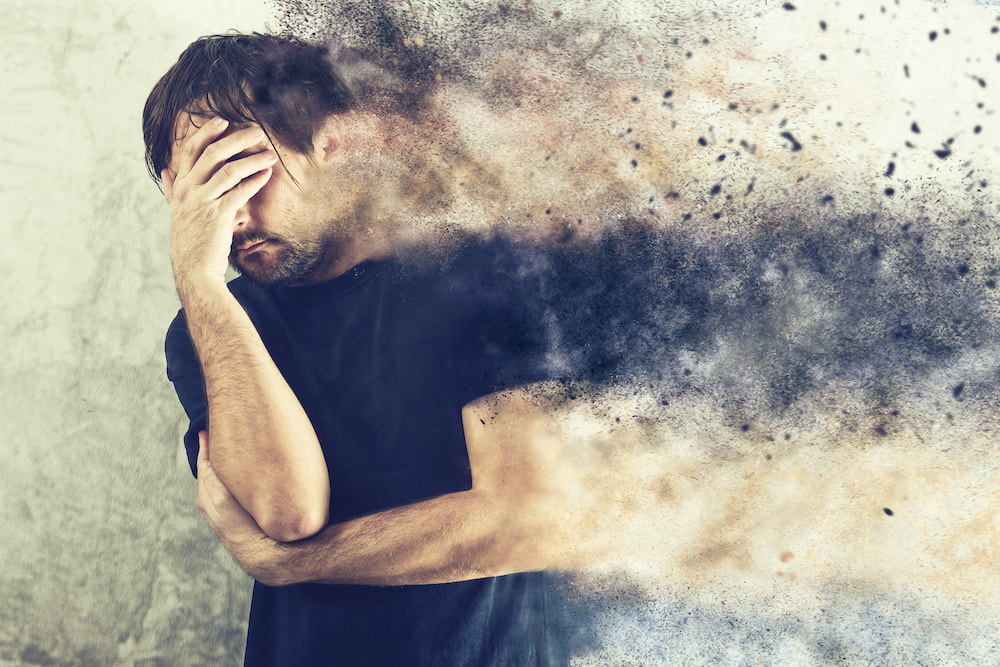Why are FAMILIES and mental health advocates of loved ones WITH SERIOUS BRAIN DISORDERS fighting so hard FOR RECLASSIFICATION?Recently, the term Serious Brain Disorder (SBD) has been circulating in my Facebook mental health advocacy groups more and more. At first, it seemed as if these circles of advocates wanted the insurance companies to code Serious Mental Illnesses (SMIs) differently so they would issue better compensation to psychiatric providers and so patients could have easier access to treatment. In that case, I thought, why not address it with how the insurance companies are required to code them? But it starts elsewhere, beyond the insurance companies. As I explored and researched the issue, it became clear that taking Serious Mental Illnesses seriously must include labeling it transparently and as unbiased as possible. Here are several reasons why families and mental health advocates of loved ones with Serious Mental Illness—especially schizophrenia and the like—are fighting with all their hearts, souls, and minds to have it recognized as what it truly is: Serious Brain Disorder. First, What is SMI?The Diagnostic and Statistical Manual of Mental Illnesses defines Serious Mental Illness as “a small subset of the 300 mental illnesses that are in DSM.” “According to the National Institute of Mental Health, serious mental illness is relatively rare, affecting only 5% of the population over 18. Serious mental illness includes schizophrenia; the subset of major depression called ‘severe, major depression’; the subset of bipolar disorder classified as ‘severe’ and a few other disorders.”(4) One of the sources I interviewed pointed out that the general public doesn’t know what Serious Mental Illness is so reclassification would clarify the concept. On the other hand, I pointed out, wouldn’t that muddy the water? Not if they are educated. SBD EffortsAn organization advocating for the reclassification of SMI to SBD is the National Shattering Silence Coalition (NSSC). The nonprofit has eight points of unity members align under, and the first is their primary concern:
The Two Were Once OneThe two disciplines—neurology and psychiatry—are not as different as one may think. In fact, at one point they were one discipline. Historically, psychiatry and psychology were a part of neuropsychiatry until “psychiatrists enthusiastically embraced the key that they were given to the human psyche, and this new ‘mentalistic’ approach consequently detached psychiatry from neurology,” this article in neuro.psychiatryonline.org explains. “It may be further speculated that neurologists, too, accepted this dichotomy and were relieved to leave the treatment of mental illness to others.”(1) A Broken System Slighted and MisunderstoodMental health and the demand for psychotherapy and psychiatry are coming into the forefront on matters related to COVID-19’s mental toll on peoples’ psyches. However, advocates for SBD have been begging for practical solutions to a broken mental healthcare system long before the present worldwide crisis. Jeanne Allen Gore, SBD advocate, co-founder, and Coordinator of NSSC, argues that mental healthcare as an industry has been misconstrued, underfunded, and at a large disadvantage from neurology and pathology sciences and healthcare systems. Gore points out, “If you do the math, there is a glaring mismatch: $36.55 spent on adults with SBD compared to $478 on those with Alzheimer’s, which is 13 times, or 1,327% more per person.” According to Gore, other brain disorders like Alzheimer’s and autism have been inclined to more empathetic responses from the public. Since Alzheimer’s and autism have been funded and fought for their position at the table of medical sciences to be recognized as structural, biological, and medical brain disorders, it appears they garner more compassionate attitudes and legitimized views from society. The Science Has Been ThereIn the article at neuro.psychiatryonline.org, authors Shahar Arzy, M.D., Ph.D., and Shlomo Danziger, M.A. explain, “With our current scientific understanding of the cerebral basis of psychiatric disorders, the era of the computational, data, and genomic revolutions once again merges the domains of neurology and psychiatry for a neuroscientific-based diagnosis, monitoring, and treatment of neuropsychiatric diseases.”(1) In regards to SBDs like schizophrenia and symptoms like psychosis, science and technology are making ways to merge the disciplines of neurology and psychiatry. Especially in disorders like schizophrenia, severe depression, and severe bipolar disorder where psychosis is a symptom, these are brain-based and medical in nature. “More recent and dramatic evidence has come largely through functional magnetic resonance imaging and positron emission tomography,” per Mary G Baker, President, European Parkinson’s Disease Association as stated in Baker, Kale, and Menken.(2) Mary Palafox, RN, Chair of the Schizophrenia and Psychosis Action Alliance (S&PAA) states, “It’s not a debate whether schizophrenia is a neurological illness. Science has already determined schizophrenia to be a neuro-developmental disorder.” You can visit their website over the next few months and follow how S&PAA is actively changing the treatment paradigm for those with schizophrenia spectrum disorders. A Legal Loophole and Political ProblemsYet in practical solutions to psychosis in schizophrenia, psychiatrists cannot treat psychosis if the patient is not voluntarily admitted or concedes to treatment by their own will. In any other discipline, in a state of psychosis as a result of a medical condition, the doctors must treat, and their hands aren’t tied by laws. The danger of the legalities with SMIs or SBDs is what happens to many with SBD like schizophrenia when untreated, known as “dying with their rights on.” Jeanne Allen Gore writes: “People with neurological illnesses, under medical standards of care, have access to resources and supportive care that those diagnosed with a ‘mental illness’ do not have access to. Their doctor makes the decisions about what level of care is needed and when it’s needed, not a judge. For decades, the decision to admit a patient with SBD for medical care has been made based on laws requiring dangerousness and the availability of hospital beds, or should I say, lack thereof, rather than medical necessity.” She emphasizes, “This unconscionably cruel system has resulted in horrific abuses, neglect, and suffering. Our loved ones end up homeless, incarcerated, or dead far too soon. Science has proven these are no-fault, neurological brain disorders. Clinicians, doctors, and scientists know this. They are not a failure to control one’s behavior, a character weakness, or the result of a traumatic childhood.” Behavioral and mental health sciences have their value in psychosocial rehabilitation for substance use. Psychotherapy continues to be a respected and evidence-based approach for those with cognitive damage and disorders from substance use, trauma, and brain injury. The value of psychology and psychiatry cannot be ignored and compartmentalized, and there is a place for all these studies to effectively work together to help patients and those who care for them. It won’t be achieved as effectively and as successfully if true severe, serious mental illness, is not taken seriously in and of itself. To do that, action must be taken to move psychiatry and neurology back into a working relationship. The advances in science are here and there is enough evidence to show the validity of a medical cause of schizophrenia and these types of severe illnesses. The Bottom LineThe battle to have SMI recognized as SBDs continues, in order to be funded for more research to find better treatments and more physical tests connecting the symptomology of psychosis to the etiology (causes) of biological and physical structures. When the standard world health organizations take serious brain disorders seriously, then doors can open to more changes and better care. Then insurance payers can code them “medical” and doctors in hospitals and ERs will have to treat them as any other medical condition: with integrity, compassion, and ethics. Advocates for SBDs are pleading for this shift in terminology and semantics because of the severity of the illnesses and the brokenness of the system that currently treats those with them. With language that articulates that these disorders are brain-based and physical, reclassifying SMI to be recognized through medical standards can lead to better care and more practical solutions for individuals who suffer from it. This will level the playing field for equity in research and treatment funding, awareness campaigns, and give access to care and programs like #HousingThatHeals, just as Alzheimer’s and autism have achieved. With every discovery we make to understand mental illness, we will all inevitably have to face the reality that “mental” is medical. Reclassifying Serious Mental Illnesses as Serious Brain Disorders is the gateway to the broader acceptance of that reality. references
addendum from Kerry Martin, CEo & FounderAn added benefit of reclassification is removing the word "mental" from our narrative which would erode stigma in our society — in our workplaces, schools, social media, etc — saving lives and lessening suffering for our children, youth and adults struggling with their mental health. Stigma is trapping far too many behind its wall in silence and in shame, keeping those in need from reaching out for help. And, for those who believe we have made great strides in eradicating stigma, I would ask you, why hasn't our own Congress repealed a blatantly discriminatory law that has been on the books for almost 60 years, the IMD Exclusion, that has resulted in marginalizing our most vulnerable citizens, incarcerating them in our jails and prisons, walking over them on our cold streets, and pushing them into early graves?
0 Comments
Leave a Reply. |
Details
Archives
February 2023
Categories
All
|


 RSS Feed
RSS Feed